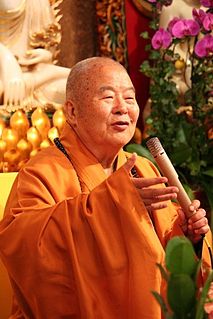A Quote by Ralph Waldo Emerson
We denote this primary wisdom as Intuition, whilst all later teachings are tuitions.
Related Quotes
We all have within us a deep wisdom, but sometimes we don't know we have it. We live in a culture that doesn't acknowledge or validate human intuition and doesn't encourage us to rely on our intuitive wisdom. Much of the Western world emphasizes rationality and reason, but overlooks or ignores the enormous value of intuition and instinctive wisdom.
The Four Reliances. First, rely on the spirit and meaning of the teachings, not on the words; Second, rely on the teachings, not on the personality of the teacher; Third, rely on real wisdom, not superficial interpretation; And fourth, rely on the essence of your pure Wisdom Mind, not on judgmental perceptions.
Are the great spiritual teachings really advocating that we fight evil because we are on the side of light, the side of peace? Are they telling us to fight against that other 'undesirable' side, the bad and the black. That is a big question. If there is wisdom in the sacred teachings, there should not be any war. As long as a person is involved with warfare, trying to defend or attack, then his action is not sacred; it is mundane, dualistic, a battlefield situation.
It is not rational to assume, without evidence, that rationality can disclose everything about the world, just because it can disclose some things. Our intuition in favour of rationality, where we are inclined to use it, is just that - an intuition. Reason is founded in intuition and ends in intuition, like a pair of massive bookends.
Tolerance is a form of generosity and it is a form of wisdom. There is nothing anywhere in the Dharma [Buddhist scriptures] that should ever lead anyone to become intolerant. Our goal as Buddhists is to learn to accept all kinds of people and to help all kinds of people discover the wisdom of the teachings of Shakyamuni Buddha








































